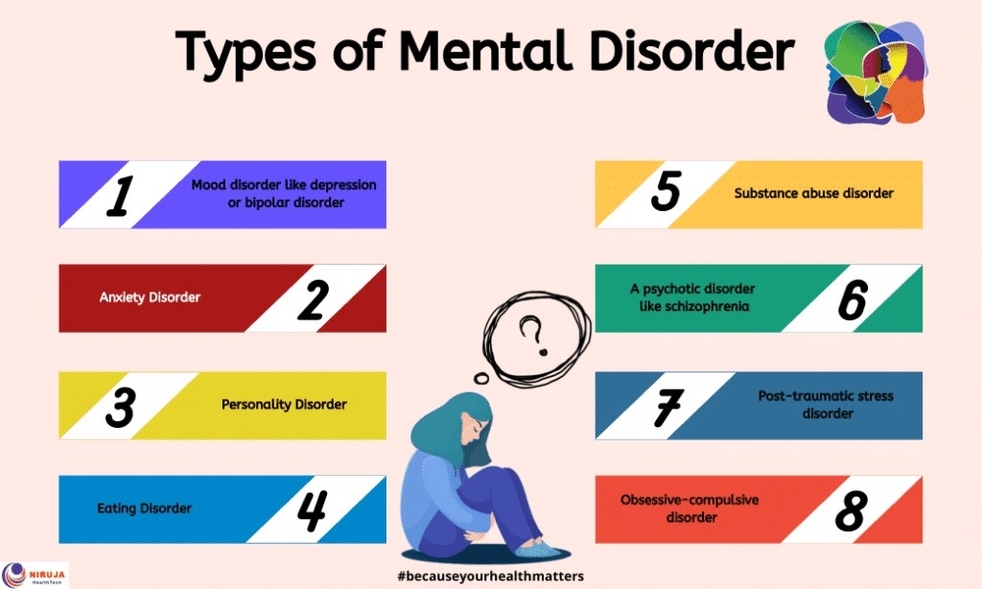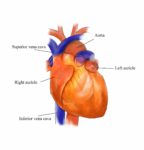Mental disorders, also known as mental health conditions, are characterized by significant disturbances in thinking, emotional regulation, or behavior. They are usually associated with distress or impairment in important areas of functioning. Here are some common types of mental disorders:
1. Anxiety Disorders: These disorders cause people to respond to certain objects or situations with fear or dread. Common anxiety disorders include Generalized Anxiety Disorder, Panic Disorder, Social Anxiety Disorder, and Specific Phobias. Symptoms can include tiredness, muscle tension, stomachache, chest tightness or pain, fear of being embarrassed, blushing, sweating, trembling, shortness of breath, rapid heartbeat, headache, and dizziness. Causes can be genetics, stress, environment, and chemical imbalances in the brain.
2. Mood Disorders: Also known as affective disorders, they involve persistent grief or sorrow alone or combined with periods of ecstasy or happiness. People with mood disorders may experience fluctuations between extreme joy and extreme sadness. Some of the most common mood disorders include Bipolar Disorder, Depression, and Cyclothymic Disorder. Symptoms can include feelings of hopelessness or helplessness, difficulty sleeping or daytime sleepiness, loss of appetite or binge eating, poor concentration, fatigue or low energy, low self-esteem, trouble making decisions, feeling ecstatic, high, or elated for no reason.
3. Psychotic Disorders: These disorders are characterized by distorted awareness and thinking. Schizophrenia is a common example of a psychotic disorder. Symptoms can include hallucinations, delusions, disorganized thoughts or speech, and lack of emotion and/or changes in facial expression.
4. Attention-Deficit/Hyperactivity Disorder (ADHD): This is a disorder with symptoms of inattention, hyperactivity, and impulsivity that are beyond what is considered normal for a person’s age and development.
5. Autism Spectrum Disorder: This is a developmental disorder that affects communication and behavior. It includes a wide range, or spectrum, of symptoms, skills, and levels of disability.
6. Disruptive Behavior Disorders: These disorders involve behavior that is disruptive and inappropriate for a person’s age. Examples include Oppositional Defiant Disorder and Conduct Disorder.
7. Post-Traumatic Stress Disorder (PTSD): This is a disorder that develops in some people who have experienced a shocking, scary, or dangerous event.
These are just a few examples of mental disorders. Each disorder has its own set of symptoms, and the severity of these symptoms can vary greatly from person to person. It’s important to note that mental disorders are treatable, and many people with these conditions lead full and productive lives.



